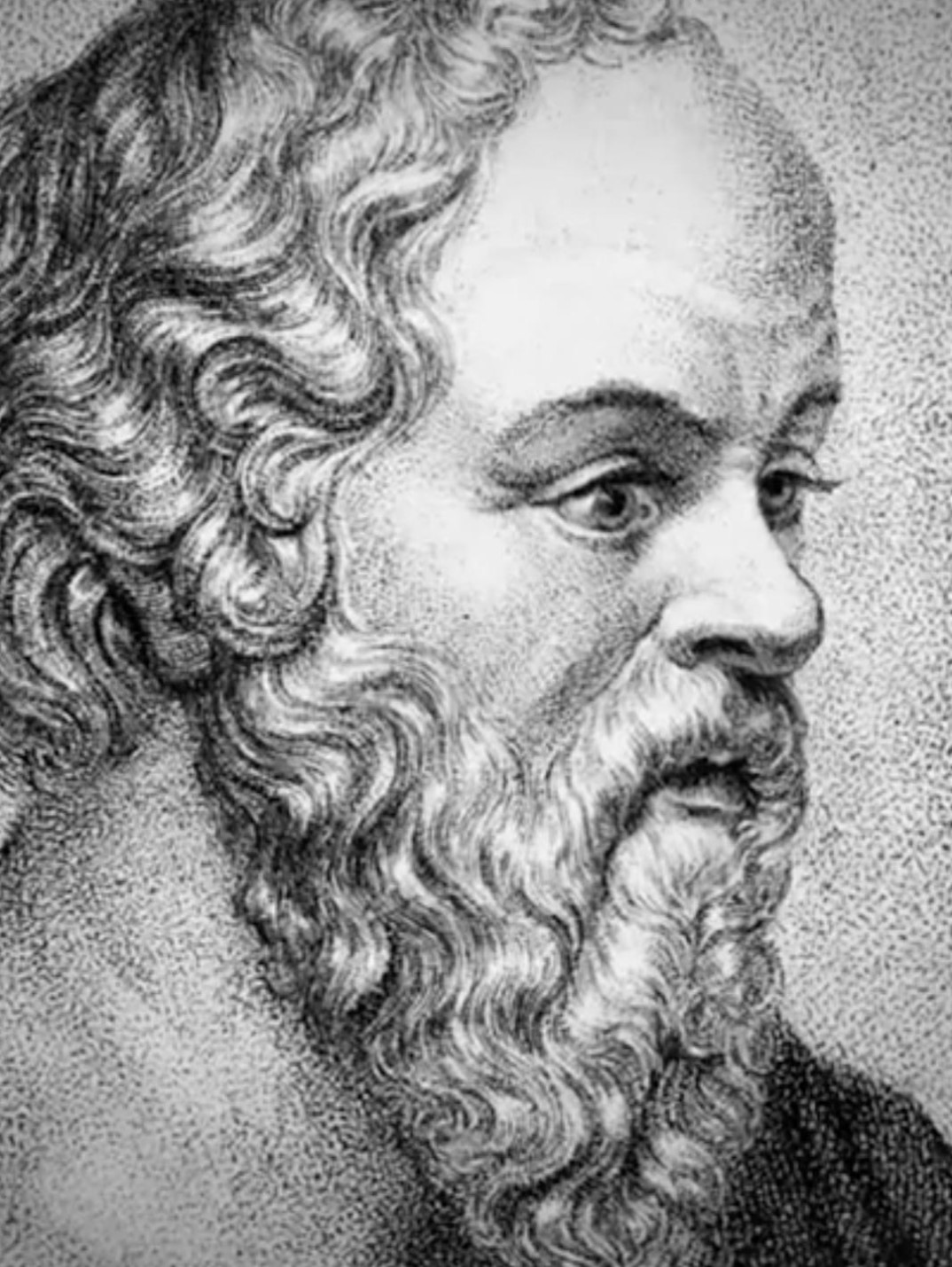This is a picture of the Greek, Socrates. He was an early therapist …. sorry, philosopher, who lives before Christ; before the Common Era (CE).
My web site places emphasis on action – getting something done. Socrates was not always too sure about action, any more than modern Buddhists are.
So here’s a bit of heresy against myself. Action is not always enough or appropriate to the moment!
How so, and when?
Doing is not always a respectable word in modern therapy. Action does not always ‘bring home the bacon’. Action can be a substitute for ‘real’ change in some situations – a handy disguise – a diversion. We can pretend to be changing.
Do you notice when you run around like the proverbial ‘headless chicken’, getting no-where very fast?
Ever heard of the French expression: “plus ça change, plus c’est la même chose“. Roughly: the more it changes, the more it’s the same thing.
Another block to effective experimenting
One reason why safe experiments may not work is that our cunning minds find actions-of-convenience that are, in truth, sneaky avoidances. One way to face this possibility is to use words, not actions. Socrates, an ancient Greek was great at this. Socrates was a philosopher and he had something useful to say about questioning ourselves and others. His famous sayings include:
An unexamined life is not worth living; and,
I cannot teach anybody anything, I can only make them think.
THINK, before Judging and Judge before Acting
So, you see, Socrates was keen on thinking before action! That’s why I suggest that the ancient Greeks had therapists on hand – oh, and probably sages from even more ancient civilisations.
As I understand it, Socrates was advising that actions assume we have made a judgement that so-and-so is a ‘good’ action. He is saying that such judgements assume we have thought enough to know what full range of options are open to us. In fact,
Socrates asserted that we cannot make a judgement about which option to follow until we’ve thought through the range of possibilities, and which ones seem most helpful.
As a by the way, this issue of how to identify our options is particularly important when life feels so rotten that there appear to be no options.
One safe experiment relating to thinking, instead of acting, is half-way down this page:
STOP-LOOK-LISTEN
An alternative approach is to remember how many of us, as children, were taught the Green Cross Code – that is, how to cross roads. The aim was to stop us rushing out into the road using the mantra: STOP-LOOK-LISTEN. It is not easy simply to STOP, just like that, so anything that helps me to reflect – before I respond – can help. Elsewhere, I have touched on the value of CURIOSITY, as a quality that can make a difference in therapy.
Finally, the amended Chinese proverb on this page, relating to adult learning, may help us to see the greater value of ‘reflection’ in the scheme of things. Action is not seen as top of the hierarchy on that page!
Therefore, we can act, but that’s best done after we’ve judged the situation and that’s best done when we’ve exercised on our ability to think on things.
So, Socrates has had a large impact on modern therapy. Note this work-sheet, courtesy of: https://www.therapistaid.com/therapy-worksheet/socratic-questioning

You will see the similarity between this work-sheet and other cognitive behavioural approaches to testing information.
His great skill was the Questioning Habit in his conversations with others (see item 7 for more practical ideas on ‘questions’ – way down the hyper-linked page). Socrates was argumentative and cross-examined others to improve our self-knowledge. He was said to be devoted to the truth so much so that he died rather than give up his philosophy and his home.
He was obliged to poison himself when a jury of his peers convicted him of being too clever by half! He believed in the power of reason and, after his conviction, he was said to have continued to argue about his fate after death.
He saw the sneakiness of his fellows and appeared to test himself to the death.
Watching out for our own sneakiness
To become more aware of our own sneakiness requires us to pay attention to our thoughts, beliefs, values and attitudes. In these areas, the experiments you may have to do are thought-experiments. Albert Einstein was the celebrity thought-experimenter and you can find out more about them at:
https://bigthink.com/paul-ratner/learn-how-to-think-like-einstein.
To work on inoculating yourself, try saying ‘hello‘ to your own sneakiness and just notice the ways in which you are sneaky. Notice all the benefits of sneakiness to you and consider whether sneaky may, indeed, help you from time to time and, if so, how.
When you find a way in which sneaky is getting in the way of your preferred change, go back to this web site and design a safe experiment once more. Let Socrates keep whispering in your ear.
One of the principles I have mentioned is that no ‘safe experiment’ will always work for everybody or even work always for some people. The most sensible thing to expect is that all experiments can work for some people, some of the time.
Sometimes it helps to think about things and to just notice our thoughts. A problem, when designing your own safe experiments, may well be to decide what to record and how to record it. So, now back to actions, once more.
Return to Front Page of my Web Site.
Some links to follow
How to design safe experiments
Re-examine the scenic route. How doe it now apply to you

2 thoughts on “When ‘doing’ isn’t enough.”